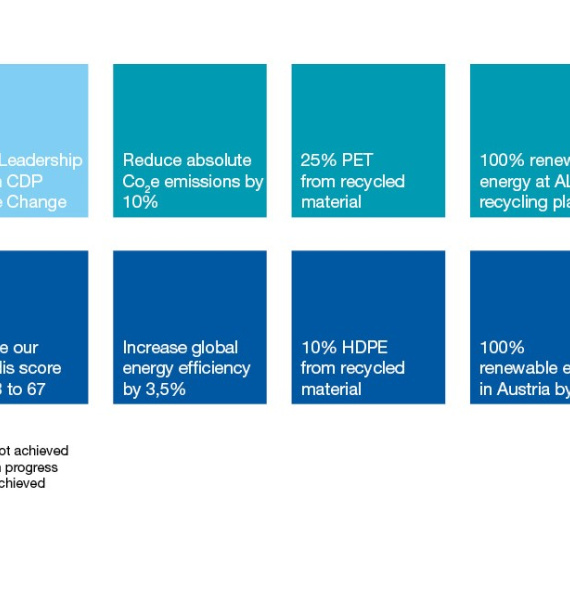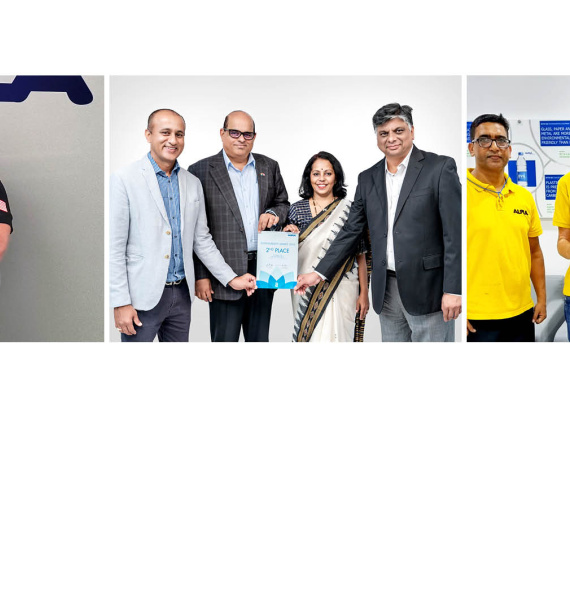Sustainability at ALPLA
ALPLA – being a family-owned company – was built on the foundational principles of long-term thinking and conscious decision-making processes, sensitive to the needs of future generations. The company has had sustainability at its core from its very conception. Today, as a leading company in the plastic packaging industry, we recognise that we must share in the collective responsibility of taking steps in the right direction to address growing environmental concerns. In prioritising sustainability, we not only align ourselves with our customers, their needs and their vested interests in sustainable practices, but also enhance our competitiveness in the market by learning and innovating consciously. We attempt to uphold the three pillars of sustainability at ALPLA – People, Planet and Profitability – in our decision-making processes and actions.
In this section, we introduce the teams working on pushing sustainability at ALPLA, our sustainability strategy and goals, and offer some insight into our performance, projects and awards.
Sustainability governance at ALPLA
At ALPLA, the corporate sustainability targets are determined by the Sustainability Steering Council. This body includes representatives of various corporate departments, including HR, Sales, Recycling, Operation Management, Plant Engineering as well as Corporate Strategy, Sustainability and Circular Economy. Furthermore, it is of great importance for our CEO, Philipp Lehner, to be part of the Steering Council and stay involved in sustainability- and climate-related decision-making processes.
The Corporate Sustainability team assumes the responsibility of the continuous coordination and monitoring of sustainability-related topics, as well as the regular sustainability reporting activities. The team also manages ALPLA’s internal Sustainability Network, established in 2019 with the aim of accelerating the inclusion of sustainability into our operations globally and cross-functionally. Employees responsible for sustainability from all nine ALPLA regions are part of the Network.
People working for sustainability
To learn even more about the topic of sustainability at ALPLA, Roland Wassermann, Corporate Director Strategy, Sustainability & Circular Economy, and Aswathy Koottummel, Corporate Sustainability & Circular Economy Expert, were invited for an interview.




